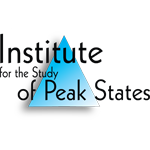The Addictions Project
Aug 27, 2018
Overview
One of our important research projects was to find a simple, fast and effective way to eliminate addictions. We started about 1999 on this project. We eventually discovered that the primary cause of cravings and withdrawal symptoms were body associations - and in 2012 we made a breakthrough in simplifying our technique. However, this approach did not work well for smoking, nor change behavior in many clients. We continue to do research to continue to simplify our techniques, and in improving behavior change.
Getting Treatment
For a description of what a therapist will treat and how you would interact with them, see our certified therapist website. For mild addiction, we recommend any Peak States certified therapist who is available to work with this problem and is qualified in this area.
Institute addiction techniques
A brief explanation of our addiction technique can be found in our Subcellular Psychobiology Diagnosis Handbook pg. 247. We plan on publishing our treatment techniques in an upcoming book in our PeakStates Therapy series. An outdated but historical snapshot into our research in addictions can be seen in "Using ISPS techniques with addictions" by Matt Fox (2002).
References
For more general information on the field of addiction, we include some of the legitimate member-based organizations working in this area in the US. Unfortunately, organizations using deceptive businesses practices appears to be the norm in this field; consumers need to be very cautious. Worse, 'pay for results' billing policies are virtually unknown in this field.
- American Society of Addiction Medicine (ASAM): www.asam.org; Wikipedia
- National Association of Addiction Treatment Providers (NAATP): www.naatp.org
- Society of Addiction Psychology, American Psychological Association Division 50: www.apa.org/divisions/div50/; Wikipedia
Project Updates
Aug 2018: Exploring a pathogen model for addictions
We are now working on a psycho-immunological technique to fully eliminate smoking as well as alcohol problems. We found that there are a number of causes for these two problems, but most people we've tested had pathogens that were causing the addictions. A fungal disease was causing the smoking addiction, and a bacterial disease was causing the alcohol addiction. In both cases, the disease was far more aggressive (and hence addictive) if the client had lead toxicity.
December 2015: Smoking addiction test
Unfortunately, our addiction process did not work well for most smoking clients (only about 10-20% of clients lost their addiction). In the fall of 2015 we found an unusual biological problem related to smoking addiction, and then develop a treatment for it. However, we found that client's smoking addiction was only temporarily relieved.
July 2011: Breakthrough in simplifying the addiction technique
We figured out a way to greatly simplify our process for cravings and withdrawal symptoms, using our improved 'body association technique'. This is now taught to all of our certified therapists.
March 2009: Teaching only PeakStates Therapists
We've decided to only train students who already have their peak states certification from the Institute. This change was for several reasons: the therapist then has the best and most complete training; it ties the therapist into our support and safety network of our clinic therapists; and because of our requirements that the therapist charges for results.
We now teach our techniques for eliminating addictions to certified PeakStates therapists. The course description is on the webpage labeled Course #210: Whole-Hearted Healing™ for Addictions.
Update 2012: we now teach these processes as part of our therapist training.
January, 2007: Large scale testing
We're currently negotiating with a US university to test our addiction treatment process. Here is a copy of our updated research proposal as a pdf file (168K). Note 2008: Unfortunately, this effort was not successful.)
August, 2006: Licensing agreement for the PeakStates Addiction Process
The licensing agreement revision 2.4 for our process to eliminate or reduce addictions (Whole-Hearted Healing for Addictions™) is attached here as a pdf file. Although the agreement is pretty standard, there are a few unusual points that addiction counsellors may have not encountered before: 1) charge only for results; 2) agree to keep skills up-to-date as the process improves; 3) an intellectual property rights proviso. (Note: The license agreement is now revision 2.4 as of 11/6/07. There were only minor changes to the content.)
Spring 2004: The discovery of vortexes
One of our staff found the cause of the alcohol craving in herself and how to eliminate. A few years later we revised that process using a different approach that gave much more consistent results. With this new approach, we found that we can now routinely eliminate the cravings and the withdrawal symptoms of addictions (alcohol, crack cocaine and opiates).
Project director
Kirsten Lykkegaard, Ph.D.
Phone: +45 20643935
Email:![]()
Copenhagen, Denmark
Kirsten is a member of the Institute research team. She directs our research on addictions and is currently writing a textbook on the psycho-immunological approach to addiction treatment. Professionally, she is a doctor of veterinary medicine, also has a PhD in pharmacology, and is a principle scientist for an international pharmaceutical company.
Our thanks to former project director Matt Fox (USA), who worked on this project for 12 years on the connection between addictions and body associations. And to Ian Waugh (Australia) who worked on the connection between addictions and peak states in 2010.
...or visit our Forum
Revision History
Aug 27, 2018: Working on a new psycho-immunological approach to addictions.
Dec 1, 2017: Dr. Lykkegaard becomes director of the addictions project.
Dec 18, 2015: Introduced our smoking addiction treatment breakthrough.
Jan 18, 2014: Updated information and put in the current director of the project.
May 4, 2011: Shortened and clarified the description of what the process can do.
March 12, 2011: Removed Matt Fox's bio, as he has retired from the Institute after a 12 years of dedicated and exemplary work.

